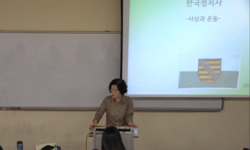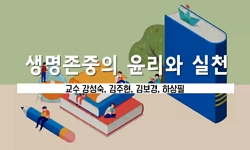This study aims to find out what encourages legislators to vote in favor of the revision of the procedural rules in the National Assembly and under what circumstances the chances of the bills passing are high by analyzing the roll call votes in the 19...
http://chineseinput.net/에서 pinyin(병음)방식으로 중국어를 변환할 수 있습니다.
변환된 중국어를 복사하여 사용하시면 됩니다.
- 中文 을 입력하시려면 zhongwen을 입력하시고 space를누르시면됩니다.
- 北京 을 입력하시려면 beijing을 입력하시고 space를 누르시면 됩니다.

국회 절차적 규칙 개정의 유인: 제19대 국회 국회법 개정안 본회의 표결 분석 = Legislators’ incentives to revise the rules of procedure: An analysis of roll call votes in the 19th Korean National Assembly
한글로보기https://www.riss.kr/link?id=A105942552
- 저자
- 발행기관
- 학술지명
- 권호사항
-
발행연도
2018
-
작성언어
Korean
-
주제어
국회법 개정안 ; 정파성 ; 본회의 표결 ; 정책 공간 ; 이념 ; procedural rule revision ; partisanship ; roll call votes ; policy space ; ideology
-
등재정보
KCI등재
-
자료형태
학술저널
- 발행기관 URL
-
수록면
121-147(27쪽)
-
KCI 피인용횟수
1
- DOI식별코드
- 제공처
-
0
상세조회 -
0
다운로드
부가정보
다국어 초록 (Multilingual Abstract)
This study aims to find out what encourages legislators to vote in favor of the revision of the procedural rules in the National Assembly and under what circumstances the chances of the bills passing are high by analyzing the roll call votes in the 19th National Assembly. The empirical findings are as follows: First, regardless of the contents of the bills, legislators who were closer to the majority party tended to oppose the amendments. Out of the three hypotheses about individual legislators’ incentives (partisanship, ideology, and experiences), only the partisanship hypothesis was consistently supported. After controling for legislators’ partisanships, their ideology was also associated with yea votes, but the direction of the association varied by content of the amendment. On the other hand, legislators’experiences proxied by their seniority and type of seats (i.e., proportional representation) did not show a significant association with roll call votes in the plenary sessions. Second, it was difficult to find a case in which the level of bipartisan cooperation at the bill sponsorship stage was high out of the bills repealed but reflected in the chairman’s bills. Chairman’s bills reflecting non-partisan amendments initiated by individual legislators were passed with high approval rates. Third, when the distance in the policy space between the ruling and opposition party leaders was close, progress was made in the bipartisan consultation related to the amendment of the National Assembly Law. We conclude that legislators’ partisanship is still the most significant incentive to revise the rules of procedure in the Korean National Assembly even after the National Assembly Advancement Act came into effect.
국문 초록 (Abstract)
본 연구는 법적·규범적 시각에서 벗어나 국회를 운영하는 절차적 규칙들의 개정에 대해 의원들은 어떠한 유인에 따라 반응하며, 어떠한 조건 하에서 국회법 개정안이 본회의에서 가결될 가...
본 연구는 법적·규범적 시각에서 벗어나 국회를 운영하는 절차적 규칙들의 개정에 대해 의원들은 어떠한 유인에 따라 반응하며, 어떠한 조건 하에서 국회법 개정안이 본회의에서 가결될 가능성이 커지는지를 알아보고자 ‘국회선진화법’ 적용 이후 제19대 국회에서 국회법 개정안 본회의 표결을 중심으로 분석하였다. 그 결과는 다음과 같다. 첫째, 법안의 내용과는 상관없이 다수당에 가까운 정치성향을 지닐수록 표결 시 개정안에 반대하는 경향을 보였다. 세 가지 가설(정파성, 이념, 경험) 가운데 정파성 가설만이 일관성 있게 뒷받침되었다. 의원의 정파성과는 별개로 그들의 이념 역시 찬성 표결과 유의미한 상관관계를 보였으나 그 관계의 방향은 개정안의 내용에 따라 다르게 나타났다. 반면, 개별 의원의 경험을 나타내는 선수나 비례대표 여부는 본회의 찬성 표결과 유의미한 상관관계를 보이지 않았다. 둘째, 위원장안에 반영된 의원 발의 법안(대안반영폐기 법안) 가운데 법안 발의 시 여야 간 협력 수준이 높은 경우를 찾아보기 힘들었다. 오히려 내용이 비 정파적이거나 스스로 자정하려는 노력을 보이는 경우 이를 반영한 위원장안은 본회의에서 매우 높은 찬성률을 보이며 통과되었다. 셋째, 전반적으로 여야 정당의 원내대표 간 정책 공간 거리가 가까울 때, 국회법 개정과 관련된 협의가 잘 이루어졌고, 이전에 계류되어 있던 법안이 본회의에 상정되어 법률화되었다. 반면, 원내대표 간 거리가 멀어지게 될 경우, 비 정파적 내용을 다루고 있는 국회법 개정안이 아니라면 본회의 상정 자체가 어려웠다. 결국, 국회선진화법 적용 이후에도 국회 절차적 규칙 개정의 유인 가운데 의원 및 원내 대표의 정파성이 여전히 가장 중요한 변수임을 확인할 수 있었다.
참고문헌 (Reference)
1 구본상, "한국 국회의원의 다차원 정책공간 분석: 이념으로서의 W-NOMINATE 추정치 검증" 한국정당학회 15 (15): 5-35, 2016
2 이내영, "한국 국회에서의 정당 양극화: 제16-18대 국회 본회의 기명투표에 대한 경험적 분석" 한국의정연구회 10 (10): 25-56, 2015
3 가상준, "한국 국회는 양극화되고 있는가?" 한국의정연구회 9 (9): 247-272, 2014
4 김준석, "지역구 표심, 정당기율, 그리고레임덕의회 하의 의원투표: 2012년 「국회선진화법」의 표결을 중심으로" 한국정치학회 48 (48): 225-247, 2014
5 박윤희, "제20대 국회의원선거 당선자 및 후보자의 이념성향과 정책태도" 한국의회발전연구회 22 (22): 117-158, 2016
6 강원택, "제19대 국회의원의 이념 성향과 정책 태도" 한국의회발전연구회 18 (18): 5-38, 2012
7 이한수, "제19대 국회 평가:국회선진화법과 입법 활동" 한국의회발전연구회 20 (20): 5-38, 2014
8 박찬표, "제18대 국회의 국회법 개정과정에 대한 분석: ‘다수결 원리’와 ‘소수권리’간의 타협은 어떻게 가능했나?" 한국의회발전연구회 18 (18): 39-71, 2012
9 김승태, "정치균열과 정책정당 – 19대 국회 표결기록에 나타난 W-NOMINATE 군집분석을 통하여" 한국의회발전연구회 23 (23): 83-114, 2017
10 조진만, "의회의 집합적 의사결정과 신뢰: 한국 국회의 현실과 선택" 한국의회발전연구회 15 (15): 93-118, 2009
1 구본상, "한국 국회의원의 다차원 정책공간 분석: 이념으로서의 W-NOMINATE 추정치 검증" 한국정당학회 15 (15): 5-35, 2016
2 이내영, "한국 국회에서의 정당 양극화: 제16-18대 국회 본회의 기명투표에 대한 경험적 분석" 한국의정연구회 10 (10): 25-56, 2015
3 가상준, "한국 국회는 양극화되고 있는가?" 한국의정연구회 9 (9): 247-272, 2014
4 김준석, "지역구 표심, 정당기율, 그리고레임덕의회 하의 의원투표: 2012년 「국회선진화법」의 표결을 중심으로" 한국정치학회 48 (48): 225-247, 2014
5 박윤희, "제20대 국회의원선거 당선자 및 후보자의 이념성향과 정책태도" 한국의회발전연구회 22 (22): 117-158, 2016
6 강원택, "제19대 국회의원의 이념 성향과 정책 태도" 한국의회발전연구회 18 (18): 5-38, 2012
7 이한수, "제19대 국회 평가:국회선진화법과 입법 활동" 한국의회발전연구회 20 (20): 5-38, 2014
8 박찬표, "제18대 국회의 국회법 개정과정에 대한 분석: ‘다수결 원리’와 ‘소수권리’간의 타협은 어떻게 가능했나?" 한국의회발전연구회 18 (18): 39-71, 2012
9 김승태, "정치균열과 정책정당 – 19대 국회 표결기록에 나타난 W-NOMINATE 군집분석을 통하여" 한국의회발전연구회 23 (23): 83-114, 2017
10 조진만, "의회의 집합적 의사결정과 신뢰: 한국 국회의 현실과 선택" 한국의회발전연구회 15 (15): 93-118, 2009
11 김민전, "원내 의석분포, 대통령의 권력, 그리고 국회법개정의 방향: 민주화 이후 국회를 중심으로" 극동문제연구소 24 (24): 61-93, 2008
12 전진영, "국회선진화법은 국회를 선진화시켰는가?" 현대정치연구소 8 (8): 99-125, 2015
13 윤종빈, "국회 입법교착의 역학 : 국회선진화법 입법과정 및 입법동인(動因) 분석" 21세기정치학회 23 (23): 99-120, 2013
14 서복경, "국회 위원회제도의 기원에 관한 연구: 제헌국회 및 2대국회를 중심으로" 한국의정연구회 5 (5): 51-80, 2010
15 손병권, "갈등의 현실과 합의에 대한 소망: 국회 운영 및 의사결정 방식에 대한 17대 국회의원들의 인식" 사회과학연구원 한국정치연구소 17 (17): 87-109, 2008
16 박명호, "“국회 선진화법”의 쟁점과 성공조건" 한국의정연구회 9 (9): 5-26, 2014
17 Adler, E. Scott, "Why Congressional Reforms Fail: Reelection and the House of Committee System" The University of Chicago Press 2002
18 Clinton, Joshua, "The Statistical Analysis of Roll Call Data" 98 (98): 355-370, 2004
19 Mayer, Kenneth, "The Dysfunctional Congress? The Individual Roots of an Institutional Dilemma" Westview Press 1999
20 Koo, Bon Sang, "Testing Legislative Shirking in a New Setting: The Case of Lame Duck Sessions in the Korean National Assembly"
21 Poole, Keith, "Scaling Roll Call Votes with wnominate in R" 42 (42): 1-21, 2011
22 Hix, Simon, "Party behaviour in the parliamentary arena: The case of the Korean National Assembly" 15 (15): 667-694, 2009
23 Jun, Hae-Won, "Electoral systems, political career paths and legislative behavior: Evidence from South Korea’s mixed-member system" 11 (11): 153-171, 2010
24 구본상, "Does a Rule Change that Weakens Majority Control Really Increase Bipartisanship in the Legislature? Evidence from the Korean National Assembly" 한국학술연구원 49 (49): 161-185, 2018
25 Mayhew, David R., "Congress: The Electoral Connection" Yale University Press 1974
26 Poole, Keith, "Congress: A Political-Economic History of Roll Call Voting" Oxford University Press 1997
27 Poole, Keith, "A Spatial Model for Legislative Roll Call Analysis" 29 (29): 357-384, 1985
28 김상신, "2012년 국회법 개정의 효과 연구" 한국경제학회 64 (64): 137-172, 2016
29 장덕진, "17대 국회 법안표결의 정치경제학-146개 쟁점법안에 대한 NOMINATE 분석을 중심으로" 한국사회학회 46 (46): 1-23, 2012
동일학술지(권/호) 다른 논문
-
갈등과 교착의 한국 대의민주주의: 누구의 책임이며 어떻게 할 것인가?
- 한국정당학회
- 최준영
- 2018
- KCI등재
-
- 한국정당학회
- 강원택(Won-Taek Kang)
- 2018
- KCI등재
-
- 한국정당학회
- 임성학(Sunghack Lim)
- 2018
- KCI등재
-
- 한국정당학회
- 유성진(Sung-jin Yoo)
- 2018
- KCI등재
분석정보
인용정보 인용지수 설명보기
학술지 이력
| 연월일 | 이력구분 | 이력상세 | 등재구분 |
|---|---|---|---|
| 2022 | 평가예정 | 재인증평가 신청대상 (재인증) | |
| 2019-01-01 | 평가 | 등재학술지 유지 (계속평가) |  |
| 2016-01-01 | 평가 | 등재학술지 유지 (계속평가) |  |
| 2012-01-01 | 평가 | 등재학술지 유지 (등재유지) |  |
| 2009-01-01 | 평가 | 등재학술지 선정 (등재후보2차) |  |
| 2008-01-01 | 평가 | 등재후보 1차 PASS (등재후보1차) |  |
| 2006-01-01 | 평가 | 등재후보학술지 선정 (신규평가) |  |
학술지 인용정보
| 기준연도 | WOS-KCI 통합IF(2년) | KCIF(2년) | KCIF(3년) |
|---|---|---|---|
| 2016 | 1.35 | 1.35 | 1.62 |
| KCIF(4년) | KCIF(5년) | 중심성지수(3년) | 즉시성지수 |
| 1.69 | 1.8 | 2.699 | 0.44 |




 DBpia
DBpia






